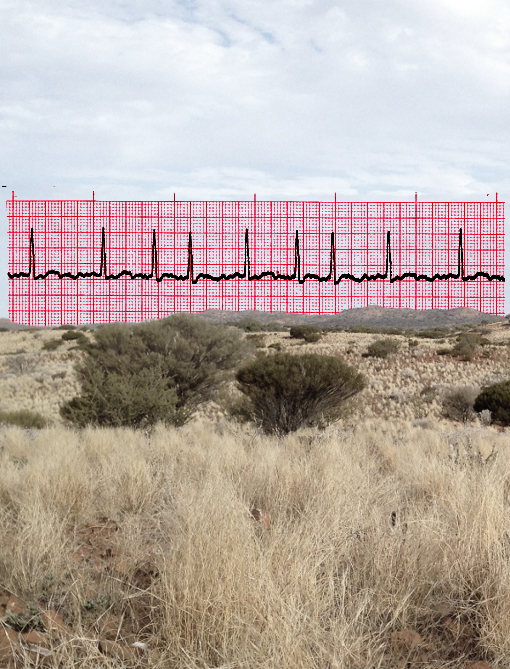Top marks for mobile heart check
 There have been some positive reports from trials of a new mobile ECG system in outback NSW.
There have been some positive reports from trials of a new mobile ECG system in outback NSW.
The Poche Centre for Indigenous Health at the University of Sydney is running a pilot program for iECG – a new way to get atrial fibrillation using just a mobile phone and a small sensor.
The system is far smaller and more mobile than traditional ECG, and so could provide a cheaper and easier way to monitor heart health in remote communities.
The iECG system also allows tests to be carried out by local healthcare workers with minimal training and effort.
Traditional ECG monitoring requires a device about the size of a fax machine to be attached to a patient using a number of sensors and cables, but the new alternative can be set up and used in a comfortable position in a matter of seconds.
Patients place their fingers on a small connector for about 30 seconds, which reads their ECG signals and generates results almost immediately. If an abnormality is detected, the patient can have their data sent immediately to a specialist anywhere in the country. It will also help with the scheduling of appointments with visiting specialists that service rural areas.
In the case of atrial fibrillation, a quick response to the data could allow anti-coagulant medications to be dispensed and stroke to be avoided.
The program is not only designed to provide better health data for Aboriginal communities, but also aims to improve community consultation and connectedness with health services.
The iECG system provides an opportunity to train local operators, so that more care can be delivered by people actually living in the communities they serve.
Experts say that using telehealth options to treat Indigenous people in communities, rather than sending them to cities, can be more successful and more cost-effective.
Culturally-appropriate health care is considered vital to allowing patients to see direct benefits, and become more likely to take advantage of them in the future.








 Print
Print